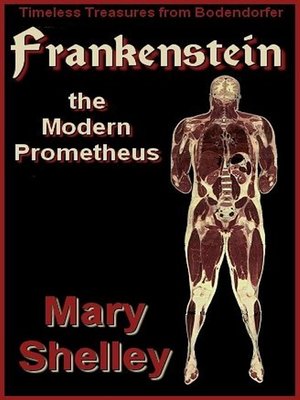
Sign up to save your library
With an OverDrive account, you can save your favorite libraries for at-a-glance information about availability. Find out more about OverDrive accounts.
Find this title in Libby, the library reading app by OverDrive.



Search for a digital library with this title
Title found at these libraries:
| Loading... |
Mary Shelley's Frankenstein endures not only because of its infamous horrors, but also for examining human accountability, social alienation, and the nature of life itself.
Mary Wollstonecraft (Godwin) Shelley wrote this novel on a dare at the age of nineteen. Her main goal was to write a ghost story. She got the idea for the novel during the summer of 1816, which she spent at Lake Geneva in Switzerland together with Percy Shelley (her future husband), Lord Byron and Dr. John Polidori. They held a ghost story competition where Mary Shelley invented her story of Frankenstein.
Since one of its main topics is a scientific discovery, Frankenstein is a precursor of the science fiction novel. Neither Frankenstein nor his monster are one hundred percent good or evil. Instead they are both highly ambivalent characters. Both Victor and his creation change during the novel as a consequence of their relationship--and both are hero as well as victim.
A number of original book reviews are included in this Bodendorfer edition, with some of them being exceedingly negative. Not only was a novel of this sort considered shocking in the early 1800's, but the fact that a woman wrote it was positively scandalous. Quite fascinating.
While this edition is from the 1818 original publication, we've included Mary Shelley's Introduction to the 1831 Edition, which sheds additional light on her work, as well as the preface from the later edition.






